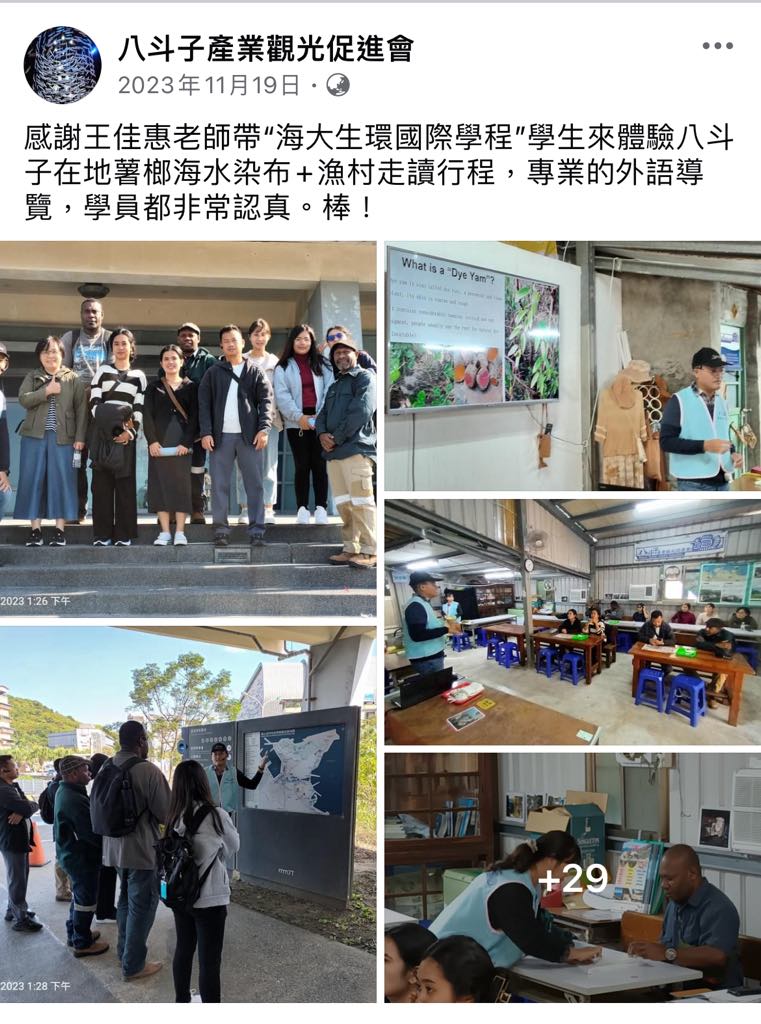Degree Requirements
Graduate students of this program require at least 30 credits, including (1) Program compulsory majors: 3 credits for the Topics on Marine Biotechnology, 3 credits for the Topics on Marine Environmental Ecology Sustainability; 4 credits for the Seminar, and 6 credits for the Thesis; (2) Elective courses: 14 credits; (3) Other requirements: Academic Research Ethics and six credits of Mandarin courses.
| Category | Subjects | Credits | First Year | Second Year | Remarks | ||
| 1st | 2nd | 1st | 2nd | ||||
| School compulsory |
Academic Research Ethics *online course |
0 | 0 |
|
|||
| Language and Culture | 0 | 3 | 3 | ||||
| Program compulsory majors | Topics on Marine Biotechnology | 3 | 3 | ||||
| Topics on Marine Environmental Ecology Sustainability | 3 | 3 | |||||
| Seminar | 4 | 1 | 1 | 1 | 1 | ||
| Thesis | 6 | 3 | 3 | ||||
| Total compulsory credits | 16 | 7 | 1 | 4 | 4 | ||
| Total elective credits | 14 | ||||||
| Minimum credits for graduation | 30 | ||||||
Briefing on compulsory courses
Topics on Marine Environmental Ecology Sustainability
The course aims to provide comprehensive knowledge of the marine environment, ecology, and sustainability. The course encourages students to initiate following recent marine ecological concepts related research by updated scientific articles reading and discussion, and by participating activities. The main topics: (1) Introduction to the marine environment (2) Introduction to the marine ecosystem (3) Introduction to climate change (4) How climate change influences marine ecology (5) Marine sustainability management. The course is designed according to SDG 4 Quality Education; 13 Climate Action; 14 Life Below Water; and 17 Partnerships for the Goals.
The students participated in a dyeing class at the Badouzi Industrial Tourism Promotion Association
Yam is a dye crop that has a deep connection with the Badouzi fishing village. Early fishermen used yams to dye cotton threads to make fishing nets to strengthen the fibers. The sodium ions in the seawater became the medium for plant dyeing and played a role in fixing the color. The potato plant dyeing on the mountain is combined with intertidal seawater rinsing to inherit the unique fishing village cultural skills of Badouzi and allow participants to experience the unique local natural and sustainable mountain and sea customs.



Topics on Marine Biotechnology
This advanced course covers a range of topics in marine biotechnology, focusing on the various biotechnological methods currently used to explore marine animals, plants, and microbes. The course will include discussions on marine biotechnology's applications in areas such as marine pollution, ecology, psychology, and microbiology. The primary goal is to provide a comprehensive understanding of contemporary approaches used in the discovery and advancement of knowledge in marine sciences. The course is designed according to SDG 4 Quality Education and 14 Life Below Water.
On November 19, 2023, 10 students participated in the Algae Center to learn knowledge of cultivating varies of algae. Besides, they learned from Dr. Jui-Sheng Chang, Assistant Research Fellow at the NTOU Center of Excellence for the Oceans that green tides have caused serious problems in the marine regions of Changhua in May 2023. Dr. Chang conducted an analysis on Ulva meridionalis, the primary cause behind the rapid growth of these green tides. This occurrence marked the first-ever report of Ulva meridionalis in Taiwan. One Papua New Genea student applied to join the team research after visiting.